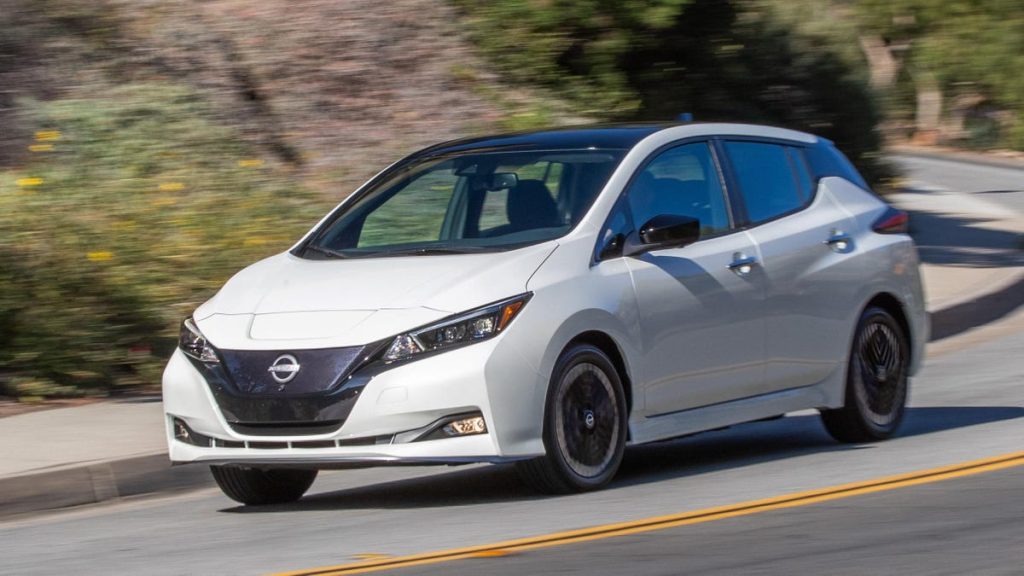A Nissan Leaf and Solar Panels Eliminated a Winery's Electric Bill

Photo: Nissan
The Nissan Leaf isn’t the flashiest electric car you can buy. It’s a relatively basic hatchback that happens to be electric. It makes a little more than 200 hp, can go about 200 miles on a charge, and doesn’t cost nearly as much as a Tesla. But that’s about all that a regular person needs out of an electric car. And it can also use its battery to charge other things, which a winery owner in Australia has used to his advantage.
Electrek reports that Joseph Evans, owner of Ballycroft Vineyard and Cellars in South Australia, now uses the Leaf’s battery to power his business at night, eliminating his electricity bill. He reportedly spent about $6,000 a year on electricity and decided to invest in solar panels. Doing so cut his electricity bill by about $4,000, but he still had to pay for electricity at night. Enter the Nissan Leaf.
By using the Leaf as a mobile power bank, Evans wasn’t just able to stop paying for electricity. He actually says he now makes a profit selling electricity back to the power company. “I’ve gone from a $6000 annual power bill to making around $50 per week (over $2,500 a year) in profit selling my excess power back to the grid,” said Evans.
Vehicle-to-grid charging only recently became an option for the Leaf, but Evans says it’s been a game-changer for him. As long as his solar panels work, his electricity cost is nonexistent. And since his house is on the vineyard property, he doesn’t have to pay to power his home either. He just makes sure the Leaf is fully charged as the sun is setting, plugs it into his V2G charger, and uses that electricity to power his house. And then he pockets the profit from any excess electricity his system produces.
The Leaf certainly isn’t the only EV capable of bidirectional charging, but it’s still cool to hear about people finding creative ways to reduce or eliminate their power bills. And it’s also cool that an EV that starts well under $40,000 has the ability to do that. Especially considering the average price of a new car, not just EVs, is pushing $50k.



